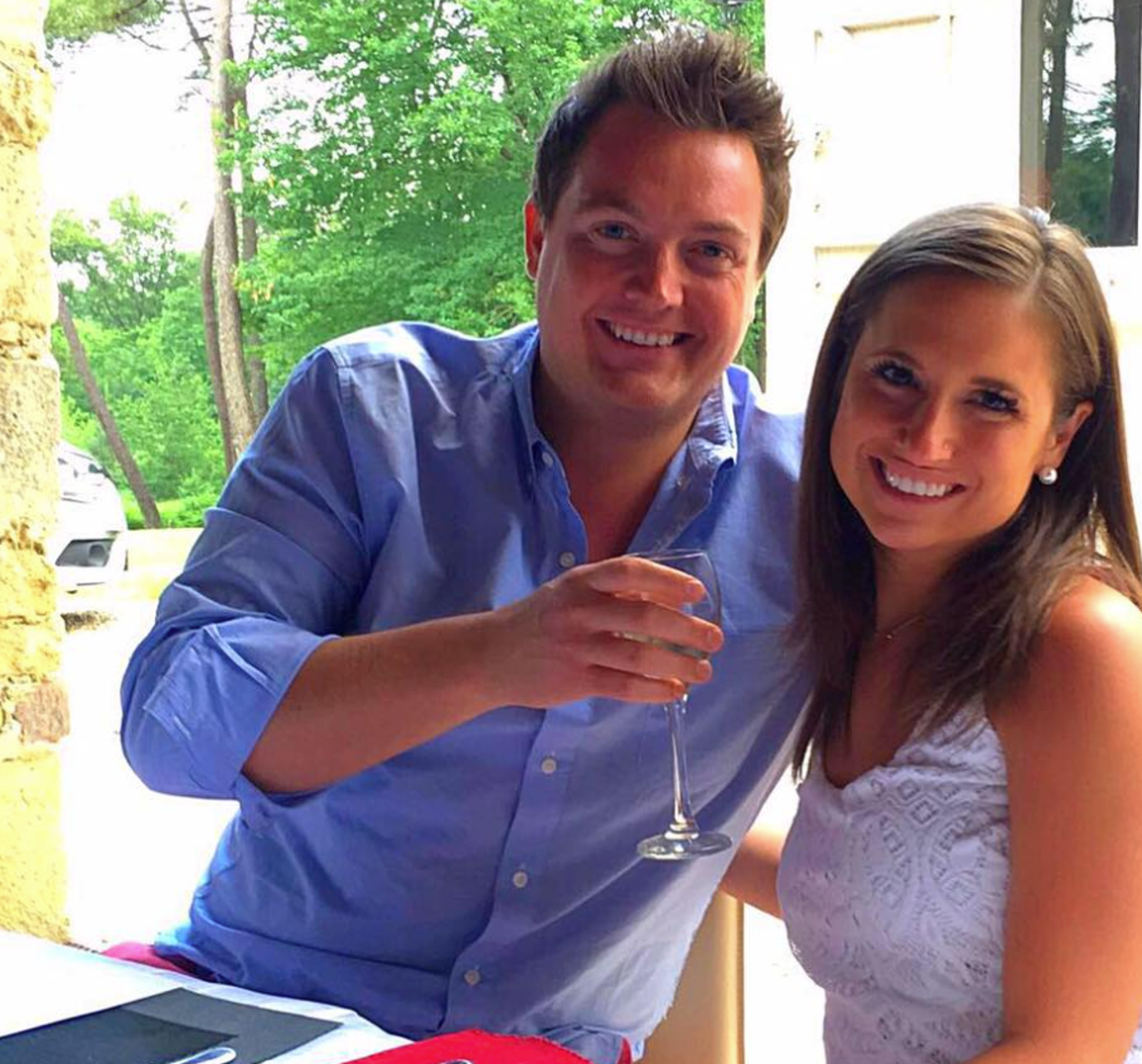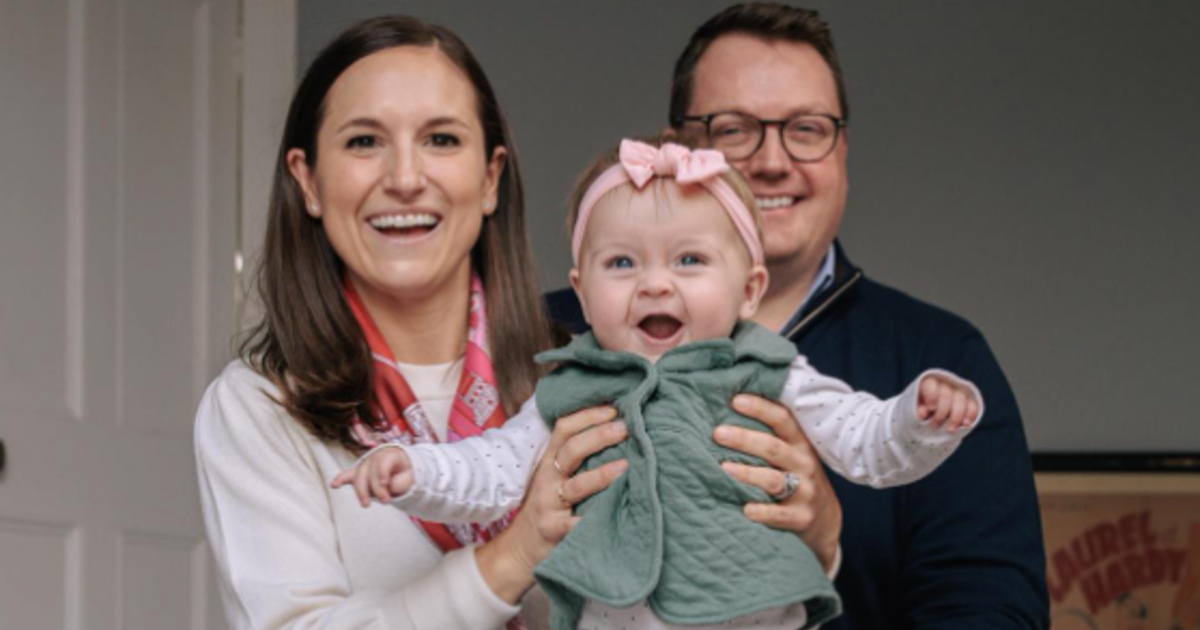Giving Birth To A Miracle Baby
- Shana Pear mom and her husband Charles are celebrating the “miracle” birth of their daughter Sienna Pear thanks to a new fertility treatment.
- One of Shana’s ovaries was removed and strips of tissue with eggs were then frozen at a temperature of minus 356F. Following the ovary’s period of hibernation and completed cancer treatment, doctors then re-implanted the tissue so that the eggs would have a chance at fertilizationwith her husband’s sperm via IVF.
- "Fertility after a breast cancer diagnosis is fairly complicated," Dr. Sarah Cate previously told Survivor Net. "Some patients that need chemotherapy may not be able to have children afterward because chemotherapy pauses menopause."
After getting diagnosed with an aggressive form of breast cancer four years ago, Shana Pear gave birth to Shana in April with the help of England’s National Health Service (NHS) program called the National Paediatric Fertility Preservation Service.
Read More
One of Shana’s ovaries was removed and strips of tissue with eggs were then frozen at a temperature of minus 356F. Following the ovary’s period of hibernation and completed cancer treatment, doctors then re-implanted the tissue so that the eggs would have a chance at fertilization.
Shana was not permitted to conceive naturally to lessen the time on a hormone therapy called Tamoxifen, which Cleveland Clinic explains “is an effective hormone therapy used to treat hormone receptor-positive breast cancer that can greatly reduce the risk of cancer recurrence and invasive cancer.”
However, the re-implantation treatment was a success as Shana conceived with her husband’s sperm through In vitro fertilization (IVF).
Now, doctors involved in the program which helped Shana and Charles conceive are looking forward to helping tens of thousands of cancer survivors with fertility treatment.
According to the NHS, the treatment could help the approximate 2,700 children and young adults who have already had their reproductive tissue removed and frozen.
Miracle Baby: Fertility After Breast Cancer Battle
The likelihood of a woman to naturally conceive a child decreases after undergoing treatment for breast cancer.
"Fertility after a breast cancer diagnosis is fairly complicated," Dr. Sarah Cate, a breast surgeon at Mount Sinai, previously explained in an interview with SurvivorNet.
"Some patients that need chemotherapy may not be able to have children afterward because chemotherapy pauses menopause."
Dr. Cate said that oncologists often sit down and lay out the possible options with each patient. At Mount Sinai, a fertility specialist will also be present for those conversations.
"I always ask patients that either don't have kids or are at an age where they could have kids, do they want more children," said Dr. Cate.
"And then we would talk to them about preserving fertility, meaning typically to either take eggs or to make embryos if they have a significant other."
Doctors will then preserve those eggs or embryos for possible use after treatment.
Fertility Preservation After Cancer Diagnosis
Dr. Cate also said that the level of chemo and stage of the disease play a role in determining whether a woman can conceive after cancer treatment.
"We don't have a lot of hard and fast evidence that it's not safe to have a child," stated Dr. Cate. "It typically depends on the patient's stage, the type of breast cancer that they have, and really individual features of the breast cancer, whether or not it's safe for them to go and have a baby after a diagnosis of breast cancer."
Some encourage women to wait six months after completing chemo to try and conceive. However, this is not always an obstacle for some breast cancer warriors.
Shifting Views On Post-Cancer Pregnancies
Shana Pear defied the odds in getting pregnant after a cancer diagnosis and gave birth to the first baby born through the breakthrough procedure of having tissue from her ovary frozen and re-implanted.
According to Dr. Terri Woodard, assistant professor, Department of Gynecologic Oncology and Reproductive Medicine at MD Anderson Cancer Center, it is seldom easy for women who have battled breast cancer.
"Breast cancer is the most common cancer diagnosis that I see in young women. This is where fertility discussions often come up in terms of concerns surrounding safety and what pregnancy might look like after a breast cancer diagnosis," Dr. Woodard told Survivor Net in a previous interview.
"Fortunately, I think the view of pregnancy after breast cancer has changed dramatically over the past ten years."
Dr. Woodard explained that many believed there was only a slim chance of a woman naturally conceiving a child after battling breast cancer just a decade ago.
"Fortunately, the research that we have now suggests that in certain women, it is reasonable to become pregnant again after you've had a breast cancer diagnosis," said Dr. Woodard.
"But in terms of fertility preservation, again, the chemotherapy that is often associated with the treatment of breast cancer can be damaging to the ovaries, and the older a woman is, the more likely it is to be damaging and cause a problem."
That is why the freezing of eggs and embryos is recommended to most women, according to Dr. Woodard, though it is not the only option available to these women.
"Sometimes we can do a procedure called ovarian suppression, which is giving a medication that shuts down the ovaries," said Dr. Woodard.
"We think that by doing that, we're making the ovary more resistant to chemotherapy."
And for those women who do wish to preserve their eggs, Dr. Woodward stressed that time is of the essence.
"Once we've started treatment, we know that we have already damaged any eggs that are there and that the response to ovarian stimulation which is the process we use to get the eggs is not going to be good," she explained.
As a result, the quality of the eggs that might be viable are still "not going to be good."
Preserving Fertility During Cancer Treatment
Contributing: SurvivorNet Staff
Learn more about SurvivorNet's rigorous medical review process.


